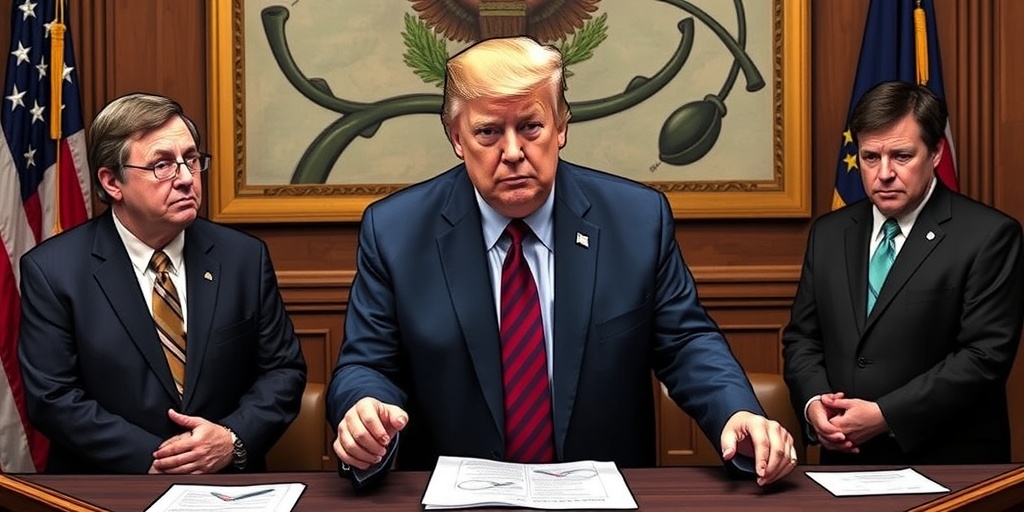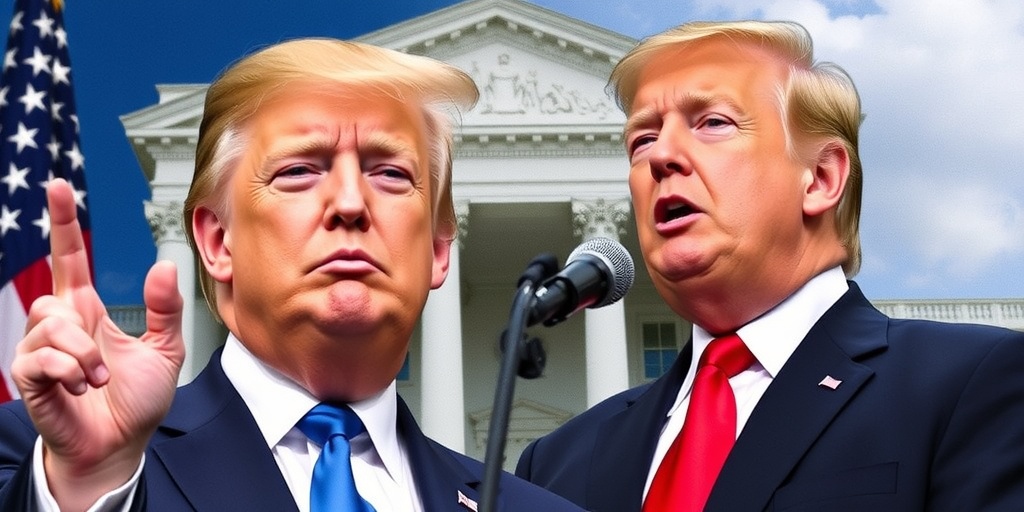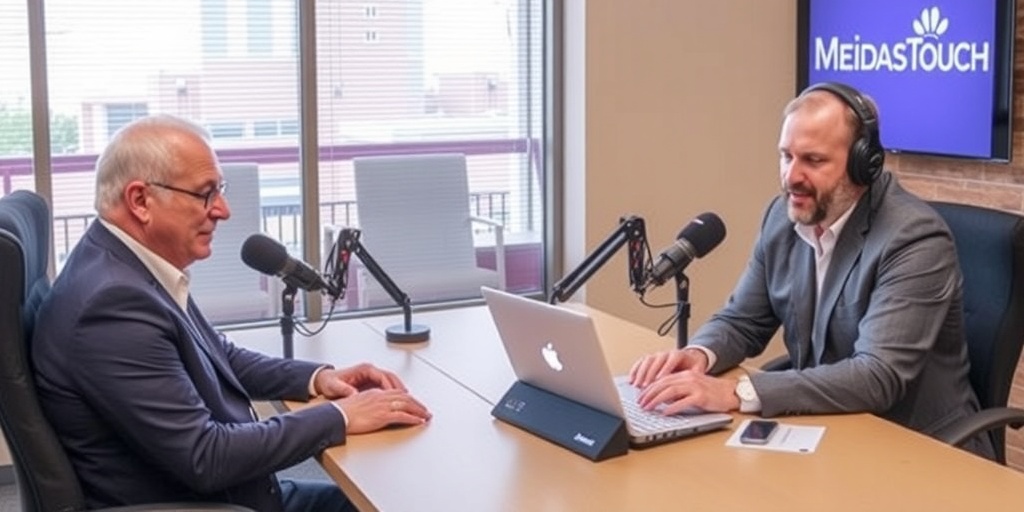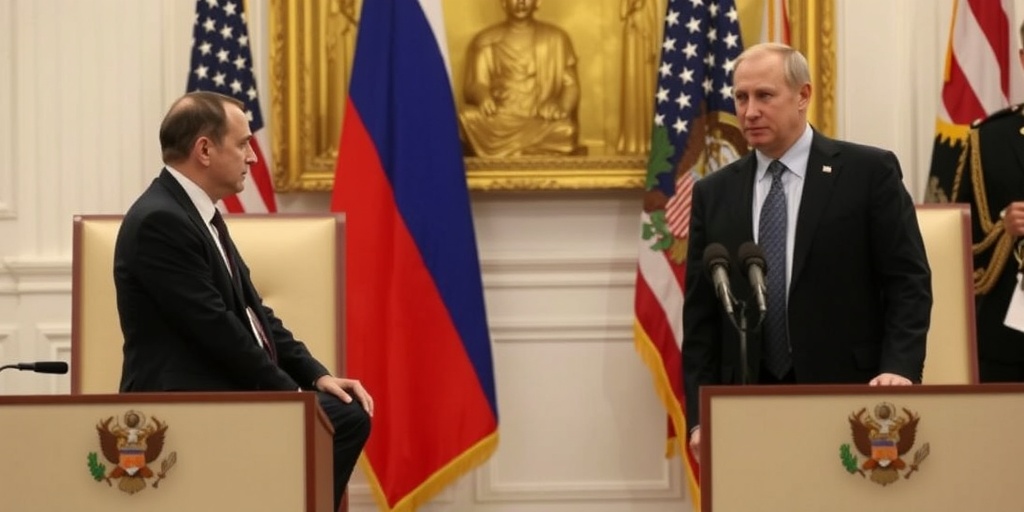Now Reading: Democrats Engage Sports Radio and Podcasts to Connect with Young Men
-
01
Democrats Engage Sports Radio and Podcasts to Connect with Young Men
Democrats Engage Sports Radio and Podcasts to Connect with Young Men
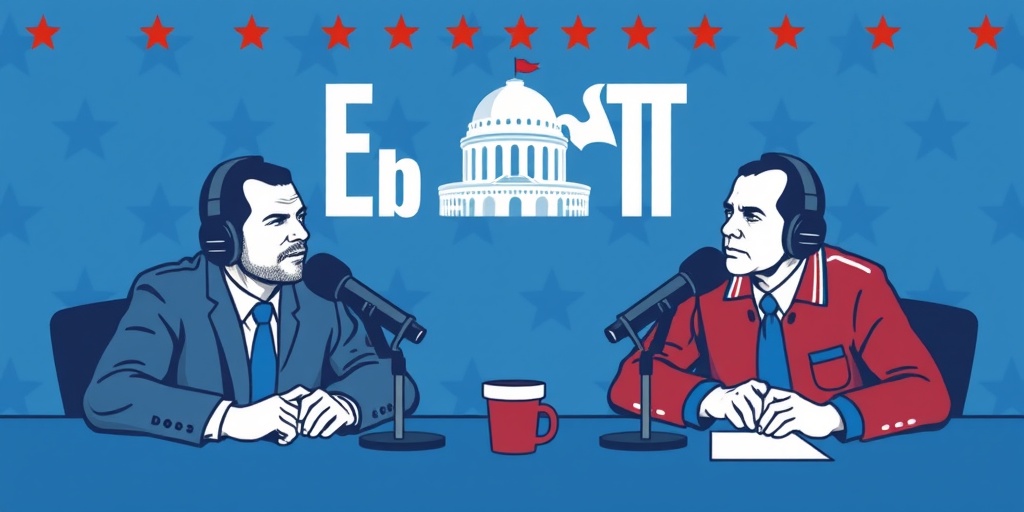
As the political landscape continues to evolve, a growing number of Democratic governors are turning to sports as a means of connecting with voters and enhancing their relatability. Public figures like Minnesota Governor Tim Walz, Maryland Governor Wes Moore, and Pennsylvania Governor Josh Shapiro are emerging as notable figures in this trend, vocalizing their candid opinions on sports teams and athletes as a way to engage with their constituents.
In an interview, Governor Tim Walz expressed his disdain for the Green Bay Packers, the long-time rival of Minnesota’s NFL team. “I hate the Packers,” he stated, highlighting the competitive spirit that resonates among sports fans. Similarly, Governor Wes Moore shared his thoughts on the Baltimore Ravens quarterback Lamar Jackson, lamenting his narrow miss for the NFL’s Most Valuable Player Award. “Lamar Jackson was robbed,” he grumbled, expressing a sentiment that many Ravens fans would agree with. Governor Josh Shapiro did not hold back either, stating, “The Sixers suck right now,” in reference to the struggling Philadelphia basketball team.
This new wave of political engagement through sports comes at a time when the Democratic Party recognizes the need to broaden its appeal, particularly among demographics that may feel disconnected from traditional political discourse. This shift is largely in response to the successful outreach strategies employed by former President Trump, who effectively drew young men into the political arena through casual, sports-themed conversations. Recognizing this dynamic, Democratic leaders are increasingly resorting to sports discussions in an effort to captivate skeptical voters.
As these governors leverage sports to communicate, they are also stepping into the realm of sports media. Governor Moore has become a regular caller on sports radio shows in Baltimore and Washington, often discussing upcoming NFL matchups and the location of a proposed new stadium for the Washington Commanders. Shapiro demonstrated his commitment by serving as a game analyst for a University of Pittsburgh basketball broadcast. Meanwhile, Governor Andy Beshear of Kentucky is gearing up to host sports podcasts during the upcoming Kentucky Derby, further highlighting how sports are becoming interwoven with political outreach.
It’s clear that the connection politicians can make by discussing sports is significant. Governor Beshear noted, “Voters want candidates who don’t just sound like normal human beings; they want to see that they are.” By discussing shared interests like sports, politicians can foster a more relatable image. Critically, the ability to engage with voters on a personal level is facilitated by these discussions, as they often stray from the rigidity of political conversations.
However, this intersection of sports and politics is not without its challenges. The need for authenticity is paramount. As prominent sports radio host Matt Jones pointed out, “In the sports world, people don’t like fakes.” Politicians who try to craft false narratives about their loyalties or sporting allegiances risk alienating audiences.
The tendency for public figures to establish their loyalties to local teams is a double-edged sword; for instance, former New York City Mayor Bill de Blasio’s unyielding allegiance to the Boston Red Sox became a point of contention among voters who favored the local Yankees. Additionally, New Jersey’s former Governor Chris Christie faced backlash for his support of the Dallas Cowboys, a choice that often put him at odds with his constituents who favored local teams like the Giants and the Eagles.
This fervor for sports transcends state lines. Governors are rooting for their teams and showcasing their loyalties as a way to foster community. In a recent interview, Moore explained that while he is now a devoted fan of the Orioles and Ravens, he still maintains a fondness for the New York Mets from his childhood. He quipped, “The Mets are still kind of like your ex-girlfriend… there’s nostalgia, but I’m married to the Orioles now.”
Amid these developments, some governors are also leveraging their popularity to shape political dialogues. New York Governor Kathy Hochul has made strides to connect with Buffalo Bills fans, appearing on sports podcasts to bolster support for her team. Reflecting on her commitment to the Bills, she emphasized, “You just have to say, ‘Go Bills.’”
Looking ahead, it is evident that the interplay between sports and politics will continue to grow, as governors harness the power of sports culture to connect with voters. In states lacking professional teams, discussion often shifts to college athletics, where support for in-state teams like the University of Connecticut or the University of Kentucky can garner wide-reaching affinity.
In conclusion, these Democratic governors are demonstrating that in an era where political engagement can sometimes feel distant, the conversation surrounding sports provides a vital avenue for connection. By tapping into the fervor surrounding sports teams, they are not only enhancing their relatability but also navigating the often complex landscape of voter engagement more effectively. As this trend continues, the integration of sports into politics may reshape how leaders communicate with their constituents, fostering deeper bonds through shared passions in the process.
Stay Informed With the Latest & Most Important News
Previous Post
Next Post
-
 01New technology breakthrough has everyone talking right now
01New technology breakthrough has everyone talking right now -
 02Unbelievable life hack everyone needs to try today
02Unbelievable life hack everyone needs to try today -
 03Fascinating discovery found buried deep beneath the ocean
03Fascinating discovery found buried deep beneath the ocean -
 04Man invents genius device that solves everyday problems
04Man invents genius device that solves everyday problems -
 05Shocking discovery that changes what we know forever
05Shocking discovery that changes what we know forever -
 06Internet goes wild over celebrity’s unexpected fashion choice
06Internet goes wild over celebrity’s unexpected fashion choice -
 07Rare animal sighting stuns scientists and wildlife lovers
07Rare animal sighting stuns scientists and wildlife lovers













